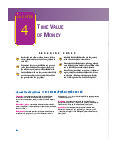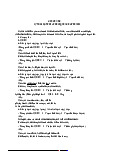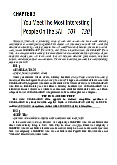


Preview text:
REPORTED SPEECH USE:
To report what somebody says or thinks without using their exact words. FORM:
The main clause contains the "reporting or question verb":
REPORTING VERBS: SAY, TELL, PROMISE, KNOW, BELIEVE, THINK, CLAIM, etc.
QUESTION VERBS: ASK, WONDER, WANT/WOULD LIKE TO KNOW
The noun clause contains the statement or question which is being reported. EXAMPLES:
"I asked Smith why he'd gone there last night."
"He told me that he needed money."
"He said he'd never had any luck."
"He wanted to know if I would help him." STATEMENTS and QUESTIONS
For statements, we use the conjunction THAT, which is omitted in informal English.
[MAIN CLAUSE + (THAT) + NOUN CLAUSE] EXAMPLES:
"Mr. Jones says (that) he'll call later."
"She said (that) she was leaving."
For questions, we use IF (Yes/No Questions) or WHO, WHAT, WHEN, WHY, WHERE, HOW,
HOW MUCH, or HOW MANY (Wh-Questions). Notice that the verb in the noun clause takes the
normal affirmative or negative form and not the question form.
We often use "double questions" with ASK, TELL, or KNOW to make a polite request for information.
"May I ask what your name is?" is politer than "What's your name?"
[MAIN CLAUSE + IF or WH-WORD + NOUN CLAUSE] EXAMPLES:
"He's asking you if you like chocolate."
"Please ask him who that boy is." TIME ASPECTS
When the reporting verb (SAY, THINK, ASK, etc.) is in the Past Tense, the "original" statement/idea or question may be modified. VERB IN REPORTED NOUN CLAUSE
When the reporting verb in the main clause is in the Past Tense,the verb in the noun clause is usually
also in the Past Tense, even when theoriginal statement or idea was in the Present Tense. DIRECT SPEECH INDIRECT/REPORTED SPEECH Be Present Be Past Present Simple Past Simple Present Progressive Past Progressive Past Simple Past Perfect Present/Past Past Perfect Perfect Modals Past Modals EXAMPLES: Mary: "I want to go alone."
Mary said she wanted to go alone.
Tony: "I'll pay you when I see you."
Tony said he'd pay me when he saw me. PRONOUNS:
Pronouns must also be changed to fit the reported statement. EXAMPLES:
Tom:"I bought my girlfriend a pin for her birthday."
Tom said that he'd bought his girlfriend a pin for her birthday.
Alice: "Can I borrow your car?"
Alice asked me if she could borrow my car. TIME ADVERBIALS
When the reporting verb is in the Past Tense, "time adverbials" may also change.
Here are some possible changes: DIRECT INDIRECT/REPORTED Now Then/At that time Today That day/The same day Tomorrow The next/following day Next week, etc. The next/following week, etc. Yesterday The day before Last week, etc. The week before This That These Those Here There



